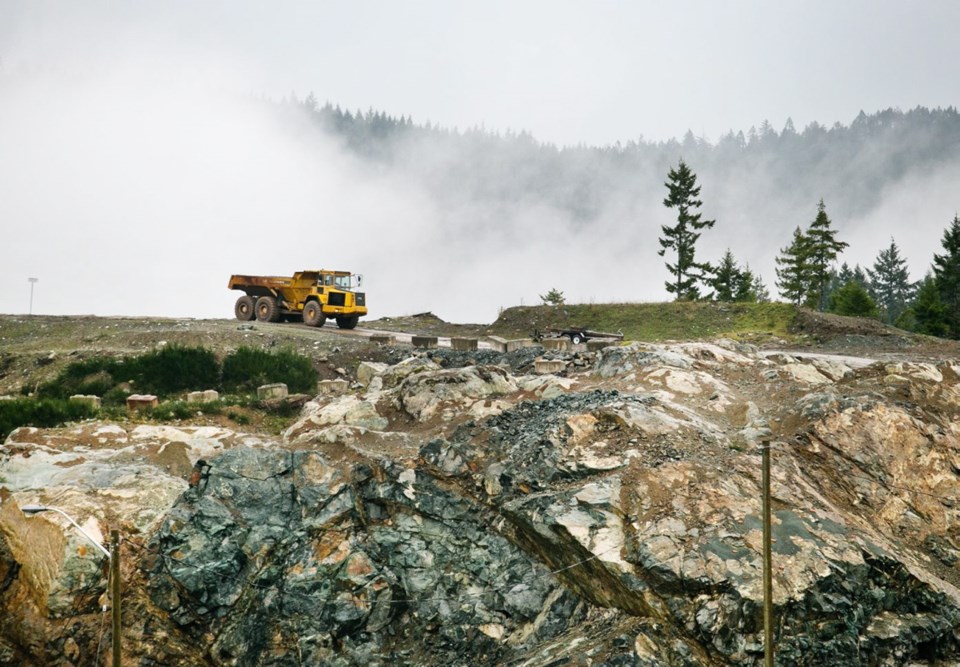The Vancouver Island Water Watch Coalition is urging the government to protect Island drinking water.
“The Water Sustainability Act and its regulations, and the Forestry Act absolutely have to be amended,” coalition chairwoman June Ross said Saturday in an interview from Nanaimo.
“There are so many problems up-Island. Victoria is fortunate because we own our own watershed.”
Last week, members of the coalition met Island MLAs to discuss problems in community watersheds across Vancouver Island. They also discussed their concerns about logging practices in watersheds on private and Crown land, Ross said.
In Campbell River, residents face the same threat to their drinking water that Shawnigan Lake residents faced, Ross said. Many are concerned that a gravel pit will be turned into a contaminated-soil dump and threaten the drinking-water supply in McIvor Lake.
Last year, the province pulled the permit for a controversial landfill near Shawnigan Lake, but no decision has been made yet on the fate of the contaminated dirt that remains at the site. The landfill, in an old quarry in the hills above the community, received a permit in 2013 to accept and store up to 100,000 tonnes of contaminated soil at the site every year.
The province pulled the permit in late February 2017 following years of protests and several court battles over the facility. But residents remain concerned that contaminants from the landfill will eventually end up in Shawnigan Lake, the drinking-water source for the community.
In Union Bay, residents are concerned about logging in the Langley Lake watershed, the drinking-water source for about 1,200 people, Ross said.
Last year, Island Timberlands gave notice that it intends to conduct industrial activity near the southwest corner of the lake for the 2018 timber harvest.
“They managed to pull it back until next year,” Ross said.
“But if you look at the Forestry Act, there should be no logging around Langley Lake.”
Government faces pressure from resource-extraction industries — forestry, frackers and mining, Ross said. “And people end up paying the price. The water has become turbid.”
New drinking-water regulations implemented in Nanaimo by Island Health require filtration of the drinking-water supply.
A new water-treatment plant is under development for the Comox Valley water system. Once it’s completed, turbidity-related boil-water notices will be eliminated. In the interim, installation of temporary UV treatment is expected to reduce boil-water notices by about 80 per cent.
“Water-filtration systems cost millions of dollars. Why should we pay to protect a human right?” Ross said.
“None of it would be necessary if logging was restricted and the community had some control over what went on in the watershed.”
Members of the coalition will work within their communities to educate and engage citizens on the challenges and the need to defend drinking water, she said.
At the April 10 meeting, the group asked government to create a legislative and regulatory framework giving communities governance over drinking watersheds.
It also wants the government to amend the Forestry Act to improve standards of practice and oversight. Forest harvesting and management standards in watersheds that supply community drinking water must be raised to ensure quality and quantity for future use, within the context of climate change, Ross said.
The coalition wants the government to establish a community-drinking-watershed investment fund to buy privately managed forest land in watersheds on Vancouver Island.
Finally, the coalition is asking the government to amend the Mines Act to restrict mining activity in community-drinking watersheds to protect drinking water.
Ross said she was optimistic after the meeting.
“We will have to continue to apply pressure. That’s still going to have to be done. We have to get out to communities and get working with them so they get on the bandwagon, as well.”
Fleming could not be reached for comment.
Leonard Krog, chair of the government caucus, said safe drinking water is increasingly an issue on Vancouver Island.
“We said at the meeting the government is listening, and unlike the last provincial government, willing to listen,” Krog said Sunday in an interview from Black Creek.
Because of the timing, the Minister of Forests and the Environment Minister were not able to attend the meeting. But Island MLAs from all parties were there, including Education Minister Rob Fleming, Liberal MLA Michelle Stilwell, who represents Parksville-Qualicum and Green Party MLA Sonia Furstenau, who represents the Cowichan Valley, said Krog.
The four recommendations put forward by the coalition have potential, he said. But First Nations also have to to be at the table.
“The safety of our watersheds is a big priority. That can’t be understood enough,” he said.



